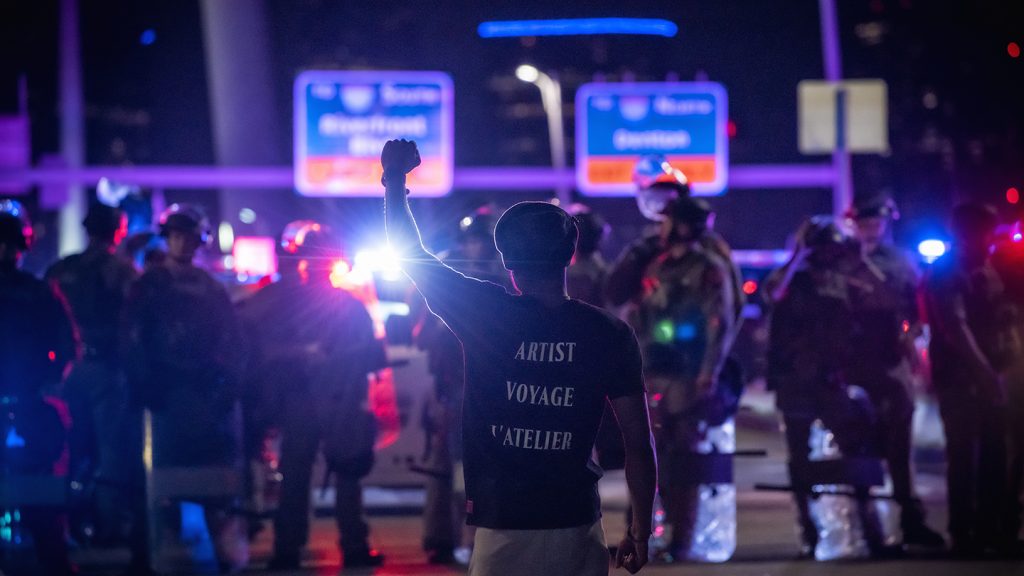
Protesters marched near the Margaret Hunt Hill Bridge protesting the death of George Floyd on June 1. (Photo by Danny Fulgencio)
I have bad news for white people: There is nothing you can do to make up for the treatment of Black people in the United States. This does not excuse us from responsibility or consign us to hopelessness. Rather, it invites us to mindfulness and humility.
We are accustomed to getting things done, to having our will enacted in the world. We are heard. Our views count. They shape policy. Which makes us wonder why we can’t simply will racism away.
Part of the problem is the enormity of the evil. White people kidnapped Black people, sailed them across the ocean, and held them captive in torture for 400 years. Black people were treated like livestock, bred and sold and butchered. Since the end of slavery, we have taken every opportunity to undermine the advancement of Black people from Jim Crow to mass incarceration, from redlining to voter suppression. There are continuing inequities in the basics of life, such as health care, education, housing, law enforcement, and employment. There is no fair price for this sin.
That is what white people would like: a price tag. The discussion around reparations proves we won’t want to pay it, but we constantly ask what we can do, how we can earn forgiveness, how we can all just move on.
In the Christian tradition, the end of the cycle of repentance is redemption, recompense, and reconciliation. These economic and relational terms suggest a righting of wrongs, a restoration of justice and peace. Unfortunately, there can be no restoration because there has never been a condition of justice and peace between Black and white people in the United States. There is no primal condition to which we might return.
White people can’t just fix it. That is not a situation we enjoy. As white Christians, it means that our models of sin and forgiveness – for many, the core of our faith – are impotent just when they are needed most. Fortunately, our tradition is broad and may contain other tools that can help.
As we negotiate race relations once again in this country, it is important for white people to listen with patience and humility, to allow ourselves to be led by Black people. That is uncomfortable territory for many of us. I recommend you sit with that. And I mean literally sit.
A round of centering prayer is called a “sit.” Like contemplative prayer in other traditions, we just sit quietly for a long time. In doing so, we learn to listen to ourselves, our soul and God. At first, it is hard to quiet our minds. Thoughts and feelings flit about trying to draw our attention. But we learn to breathe, to acknowledge and accept the thoughts and feelings so that we can let them go. In doing so, we learn patience and humility. We learn to wait and listen, to allow ourselves to be led rather than take charge. This is what Black people most need from us right now.
If there is a solution to the racial divide in America, it won’t come from white people. And it won’t be what white people want or expect. It won’t be modeled on something white people already know. Instead, it will have to be something new, something that white people can’t imagine without placing ourselves at the center of it. It will come out of the experience and the ingenuity of Black people.
Our task, then, is to wait with patience and humility for things to emerge, to allow ourselves to be led. Until then, sit down. This is not an attack or a rebuff of our concern. It is not asking us to do nothing. Rather, it is an active waiting, developing readiness to support. It is an invitation to a new possibility, a hope for what is now unseen.




